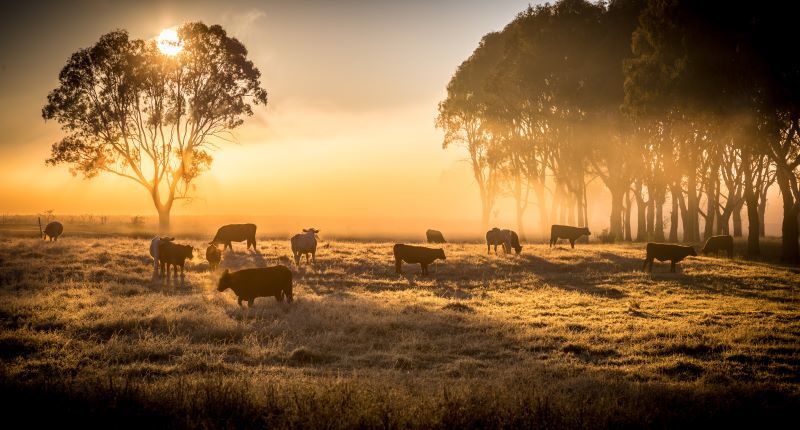- Supercharged rural sector
- Cattle prices at all-time high
- Hobby lifestyle holdings in hot demand
Residential property prices throughout our region may be ratchetting up week after week, but there’s another market segment many locals rightfully consider the backbone of Gympie and surrounding townships.
And that’s the rural sector. When our primary producers do well, the entire community reaps the rewards.
I’m proud to say rural real estate is a key pillar of our business – and I can tell you, we’ve never seen the market healthier than it is right now.
Across the board strength
Our service area extends north to Bauple, south to Pomona, east to Tin Can Bay and west to Goomeri with our rural division steered by selling agent, Bodie Weir. As both an agent and a farmer, what Bodie doesn’t know about rural property isn’t worth remembering.
I had a chat with Bodie about why we’re seeing so much strength in rural real estate and he said several factors aligned in 2021.
For starters, interest rates remain at historic lows. Not only has affordable lending allowed farming operations ready credit to invest in production, but cheaper borrowing boosts the buying power of purchasers.
Then there’s the ongoing demand for our products, particularly beef. Protein is in high demand both domestically and international, and as one of the county’s premier cattle-production heartlands, we’re reaping the rewards.
COVID also delivered a shift in mindset. A yearning for regional living, relative affordability and plenty of space for raising a family have brought a lot of new faces to our area in the past 12 months. Many have come from big cities and are seeking a simpler life.
There’s also a big push for sustainable, ethically sourced produce. A rustic, back-to-basics thinking has pervaded the population, and it’s coming to the fore in Gympie.
Bodie says he’s seen two types of rural real estate, in particular, leading the charge in this rising market.
Cattle production
Cattle prices are at an all-time high, so producers can justify spending more on acquiring good-quality holdings. One of the more interesting changes is the downsizing of farms.
We’re seeing more and more smaller, hobby-type farms springing up. These holdings will run 200 breeders as a supplement to an owner’s other income streams. The numbers work well in the current environment because ethically grown and sustainably produced cattle have gained appeal in the market and can fetch a price premium.
This hobby-farm lifestyle slots in nicely with the rise of the remote working. The property owner can run his cattle operation as a secondary income while earning a primary wage in another “off-site” job. Bodie said he’s consistently asked whether a particular listing has a good NBN connection by potential buyers.
Nolan’s Beef – our main meat processing plant – has also increased demand for local small-producer cattle farmers around Gympie. Nolan’s will process public meat, not just stock from larger operations, so if a hobby farmer has a cow that needs processing, it can be taken care of at Nolan’s.
Lifestyle rural
The other property type seeing a marked surge in popularity is rural lifestyle real estate.
We’re talking subsistence-style property that’s 160 acres or so, which allows the owner to grow and produce cattle and crops for their own consumption. Many buyers also use it as a multi-generational holding with plenty of space for elderly parents to live on the property as well.
Lifestyle property is highly desired by Sydney, Melbourne and Brisbane buyers, too. They’re moving to regional Queensland and wanting to have a property where they can grow their own sustainably sourced food.
COVID has had plenty to do with this uptick. People simply want more open space and independence to take care of their own needs. In this crazy world, who knows what’s going to happen next?
The future
There is obviously a rural transition underway in our market – but things do move quickly. For example, when the land itself becomes more valuable than the produce it turns out, you often see large blocks being subdivided into those smaller holdings.
And while prices are running hot, there’s remains ample opportunity in the market. More and more people are moving here to enjoy a treechange, and they want to know where and how their food is produced. Therefore, small farms continue to be good buying in our region. Their popularity isn’t slowing down.
Our location will continue to drive prices in the near future too. Just 30 minutes away is the Noosa Hinterland where property costs double what it does in the Gympie region. Expect this relative affordability to be a huge drawcard for buyers.
Yep, the next 12 months is set to deliver plenty of growth in Gympie rural. Just make sure your due diligence includes a chat with a local expert like Bodie.








